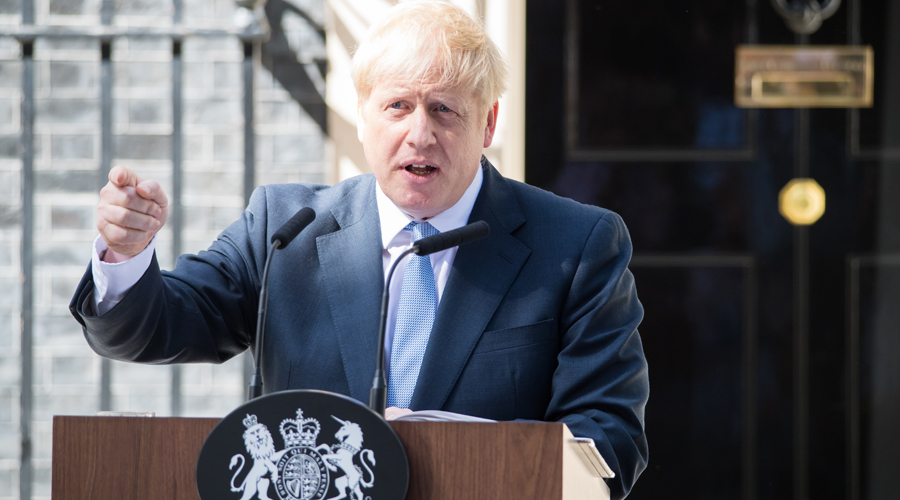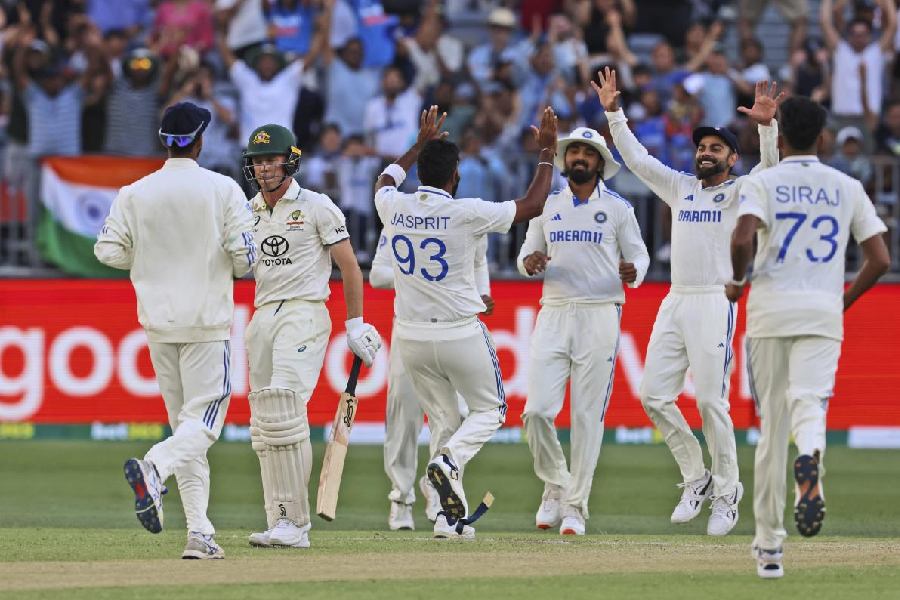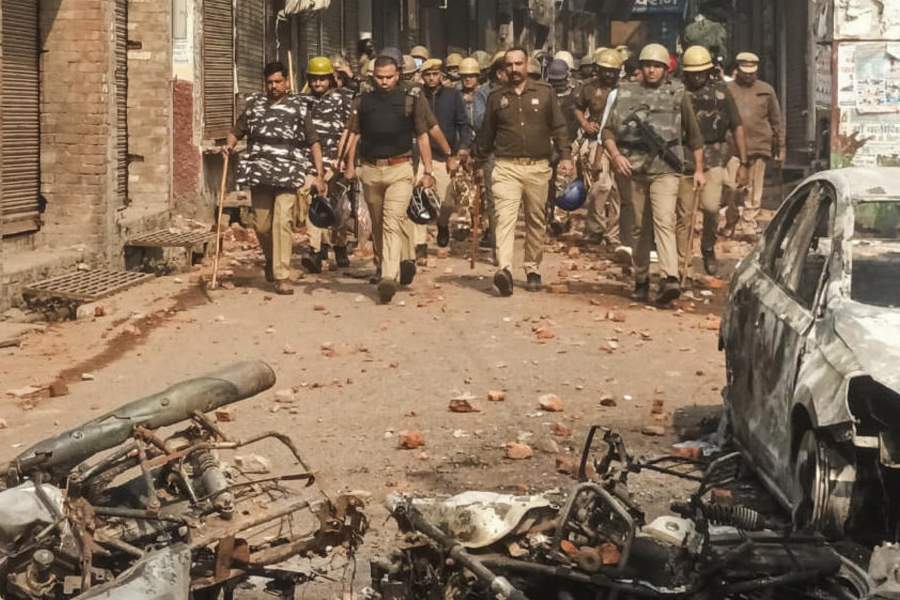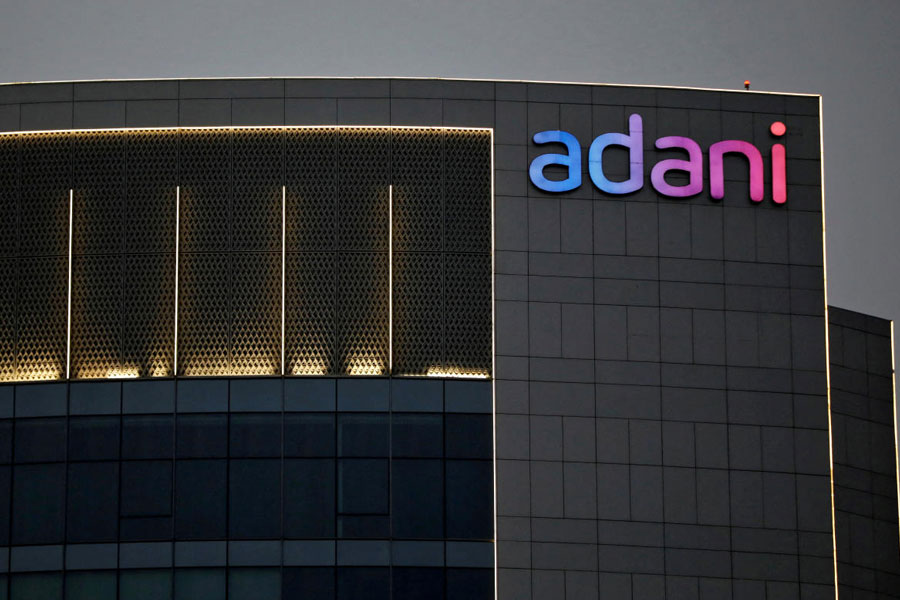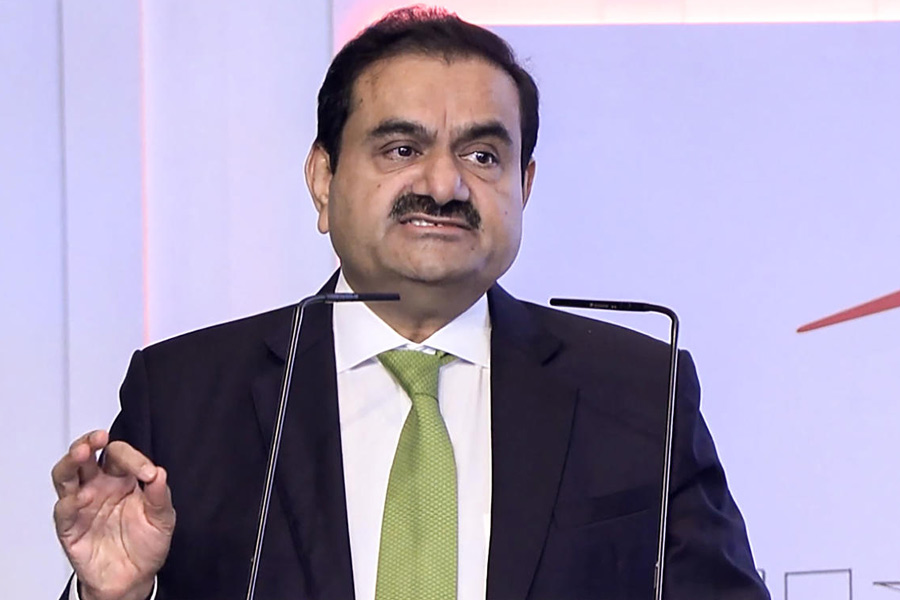Prime Minister Boris Johnson on Monday urged people to move to the next stage of considerable easing of lockdown restrictions that allows greater indoor interactions with a heavy dose of caution , as the UK continues to monitor rapidly rising cases of the B1.617.2 variant of COVID-19 first identified in India.
In what is step three of a four-step roadmap set by Johnson for easing the legally-binding lockdown restrictions, the hospitality sector including pubs, restaurants and cinemas and most businesses can resume close to normal service in England, Wales and most of Scotland.
However, surge testing and an accelerated vaccination programme is being implemented as the threat from the variant first found in India looms over the reopening, with UK Health Secretary Matt Hancock warning over the weekend that the B1.617.2 variant of concern (VOC) seems to spread like wildfire among those who have not been vaccinated.
"Together we have reached another milestone in our road map out of lockdown, but we must take this next step with a heavy dose of caution," said Boris Johnson.
"Everyone must play their part by getting tested twice a week, coming forward for your vaccine when called, and remembering hands, face, space and fresh air. I urge everyone to be cautious and take responsibility when enjoying new freedoms today in order to keep the virus at bay," he said.
The latest easing of lockdown, described by scientists as a very finely balanced political decision amid low overall coronavirus infection rates but the doubling of the case numbers of the B1.617.2 VOC to over 1,300 in a week, comes as the National Health Service (NHS) hit another milestone in the vaccination programme.
Experts believe the variant, which is very highly transmissible, does spread more easily but early data suggests that vaccines still work against it.
According to the latest NHS data, more than 20 million UK adults have received both doses of a COVID-19 vaccine even as the remaining over-50s and vulnerable groups will be given their second jabs ahead of the 12-week timeline at eight weeks.
The latest real-world data has once again demonstrated how effective the vaccine is at providing life-saving protection, with two doses of the Pfizer vaccine providing 97 per cent protection against mortality, said Matt Hancock.
"Receiving a second dose is vital to ensure you have the ultimate protection from this deadly virus I encourage everyone to book their jab as soon as they are offered it," he said.
The Department of Health and Social Care (DHSC) said that latest data from Public Health England's (PHE) real-world study shows the vaccines have reduced hospitalisations and deaths, saving more than 11,700 lives and preventing 33,000 hospitalisations in England by the end of April.
It confirms that vaccinated people are far less likely to get COVID-19 with symptoms and are even more unlikely to get serious COVID-19, to be admitted to hospital, or to die from it and there is growing evidence that vaccinated people are less likely to pass the virus to others.
The DHSC said the focus is now on tackling the rising cases of the B1.617.2 VOC first identified in India, as well as strengthened surge testing, genome sequencing and enhanced contact tracing measures deployed across the north west of England to control the spread. Ministers are hoping surge testing and the acceleration of second vaccine doses can help combat the spike in the B1.617.2 VOC in parts of the country, with the Army assisting certain areas with the surge testing programme.
Meanwhile, the UK reported four coronavirus-related deaths and 1,926 new cases over Sunday, compared with seven deaths and 2,027 cases announced on Saturday.

